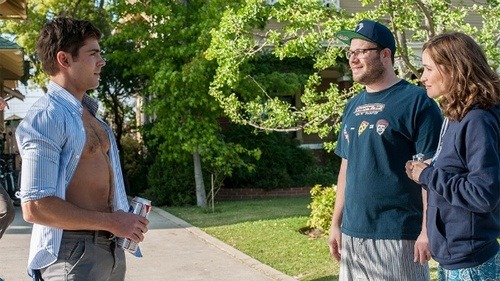
★★★★
Pawel Pawlikowski’s’ ‘Ida’ (pronounced Eeda), a compact masterpiece that takes place in Poland in 1962, is about a woman who learns, days before taking her vows at a convent, that she is a Jew.
We see the plain features of this young novice named Anna (a superb performance by first-time actress Agata Trzebuchowska) as she cleans the face of the statue of Christ with a small brush; her wide eyes capable of immense kindness. Raised in an orphanage from infancy, with no knowledge of her past, Anna is stunned to learn from the Mother Superior that she has an aunt named Wanda Gruz (played with supreme confidence by Agata Kulesza). Wanda is her only living relative who drops the bomb on her (“So, you’re a Jewish nun”).
Anna’s real name, her aunt tells her, is Ida Lebenstein. She is told that her Jewish parents were casualties of World War II. The two women (one as indignant as the other is composed) seek answers to some difficult questions: Who killed her parents? Where are they buried? Family history and natural history intertwine with the nature of faith.
Credit Mr. Pawlikowski who co-wrote the screenplay with Rebecca Lenkiewicz for having the courage to deliver the big reveal at the start of a relatively short picture (running time of 80 minutes including end-credits) – such a storytelling approach, in theory, would appear to diminish dramatic impact, but not here. I would argue that it is heightened. If only because it triggers the journey that follows; make it journeys – concrete as well as spiritual through this haunted, threatening landscape. This is a world filled with pain, violence, and guilt. ‘Ida’ is both a road movie and a detective story. In some ways, this journey reminded me of Denis Villeneuve’s excellent ‘Incendies’, a film that explored similar subjects and in which every scene was permeated by a creeping sense of dread.
I’ve been talking about this movie to friends since last Friday’s screening. As most aren’t familiar with the title, I’m often asked, “What’s it about?” The plot can be summarized in a few sentences; and though the central quest is imperative to the film’s narrative, it’s not what I think about first when recalling how I felt watching ‘Ida’. It is the more the quiet, individual moments; the observations and the moods. Little is stated directly; we infer from offhand remarks, and subtle suggestions.
What’s also distinctive about the picture is the look of it – I was enthralled by it visually. ‘Ida’ is beautifully photographed; shot in inky black-and-white, deployed almost entirely in static long shots, and contained within a narrow frame that is almost square with an aspect ratio of 1.37:1. This is an appropriate visual aesthetic given the characters’ initial black-and-white conceptions of the world. The film was shot digitally by Ryszard Lenczeski and Lukasz Zal. Much of the story unfolds towards the bottom of the frame with ample space above their heads; an unusual filmmaking choice that maintains its distance, never assuming access to the inner lives of its characters. This calls attention to the physical spaces occupied by these characters; they seem small and alone, lost in this world, or maybe scaled in accordance with a divine presence.
But most importantly, you’re wrapped up in this story – you care about Anna’s (Ida’s) fate. She has spent her whole life in a sheltered space until a terrifying truth is revealed; but it is her determination to learn everything she can about her lost family in the company of her aunt (who is also a lost soul). Whatever passion Walda once possessed as an exemplary communist, and a former state prosecutor has been replaced with cynicism; she is filled with self-loathing. Chain smoking, drinking heavily, and bedding random men, she is the polar opposite of her niece (Wanda is the atheist, Ida is the believer; Wanda is a citizen of the world, Ida is sheltered; Wanda is the sinner, Ida is the saint). She does want Ida to have at least a taste of life before taking her final vows.
The ultimate question may be whether Ida stays out in the world or returns as Anna, but it certainly not the only one. What a world- provocative and harrowing in equal measure. There is so much feeling here, and the fact that this is a return home for the filmmaker (who was born in Poland but grew up in Great Britain) makes me believe that this movie must have come from a personal place. Thrilling, haunting, original, and masterfully accomplished, ‘Ida’ is one of the best films of the year. QED.


